Alexander Alekhine - The Combination King
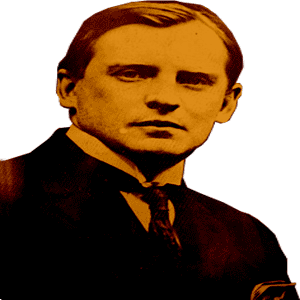
Alexander Alekhine
Alekhine lived and breathed chess like no other master before him. Everything else in life took second place. All day every day he would analyze positions in his head, going through combinations, always striving to strengthen his ideas and plans.
A story from his school days tells how once during an algebra test all the kids were concentrating hard trying to figure out the answer to a problem set by the teacher. All of a sudden the silence was broken when young Alekhine shouted, "that's it!" and leapt out of his desk with his eyes shining, a look of euphoria on his face.
"Have you got the answer Alekhine?", asked the teacher. "Yes", he cried, "I sacrificed the Knight and White wins". The classroom erupted with laughter. But the young man was on a journey towards chess immortality. Add your Alekhine articles and games here.
Young Alexander
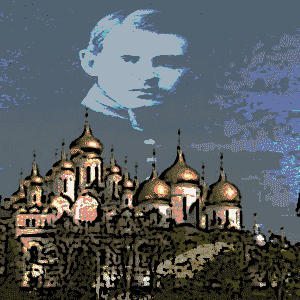
Alexander Alekhine lived in his native Moscow until the age of 19
When he was 7 his mother, his older brother Alexei and his sister Varvara taught him how to play chess. Alexei would be his main sparring partner in those early years. The family paid local chess masters to give Alekhine lessons. The boy, totally consumed, caught the chess bug.
At the age of 10, Alekhine was competing in correspondence chess leagues organized by magazines. He took part in his first over the board competition at the age of 15. It was the Moscow Chess Club Spring Tournament. He tied for 11th.
Early Career
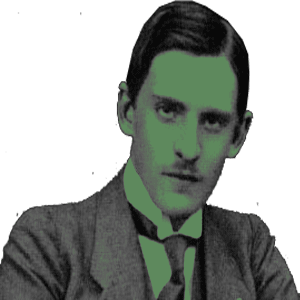
Alexander Alekhine started to make his presence felt in his early 20s
Within a year he was the strongest player in the St Petersburg Chess Society winning the 1st Category Tournament of the St. Petersburg Chess Club. He had won the St Petersburg Winter Chess Club Tournament a month earlier. He was competing internationally now, finishing 8th in the 1910 German Chess Congress in Hamburg. He was 3 points behind the winner Carl Schlechter.
He met his future great rival Capablanca over the board for the first time in 1913. He lost both games in an exhibition in St Petersburg. His first major victory arrived a year later. He shared first prize at the All-Russian Masters Tournament in St Petersburg with Aron Nimzowitsch.
Playing with the Big Boys
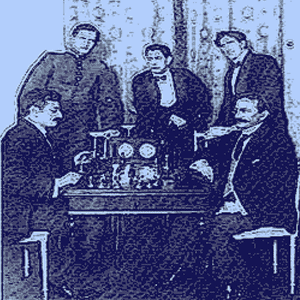
Emanuel Lasker and Siegbert Tarrasch playing chess as Alexander Alekhine, J.R. Capablanca and Frank Marshall look on
In the opening round each player played one game against the rest of the field with the top five in the league table to qualify. The shock of the first round was that Akiba Rubinstein did not make it through. His defeat to Alekhine proved critical. Alekhine instead joined Capablanca, Lasker, Tarrasch and Marshall in the final round.
In the end Lasker overtook Capablanca who had been leading from the first round with Alekhine finishing a highly commendable third. Tsar Nicholas II declared the five finalists as Grandmasters. Alekhine had laid down his marker for the future.
Turbulence of World War I
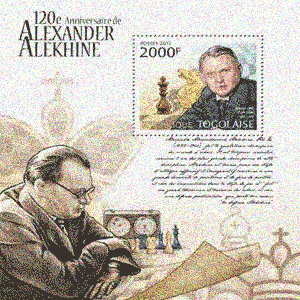
Alexander Alekhine was detained in Germany during World War I
He and several other Russian players were arrested and interned. He was released a couple of months later and was back in Russia by the end of 1914.
He won the 1915 Moscow Chess Club Tournament. After the war things seemed to settle down with the Germans driven out of Russia's traditional sphere of influence. Russia itself was however engulfed in political upheaval. Alekhine was arrested by the Bolsheviks, accused of spying for the White Army. He was for a time held in a death cell in Odessa. Rumors of his execution spread in the west but it later emerged that he had been released.
Challenging for the World Championship
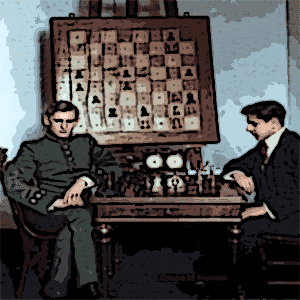
Alexander Alekhine joined the posse chasing after Capablanca's World Championship
He finished 2nd behind Capablanca at London 1922. It was here that Capablanca wrote the London Rules, laying down stringent terms for challenges to the World Championship. Everyone including Alekhine signed the document. He was 3rd at New York 1924.
Alekhine was consistently finishing behind Capablanca in tournaments and had never beaten him in serious competition. He still believed that if he could secure a World Championship match he could, with a lot of work, push Capablanca very hard.
Some Argentinean businessmen bought into this belief and with the help of their President, secured the funds for Alekhine's challenge. It was set for late 1927. Capablanca gained a huge psychological advantage shortly beforehand by winning a major tournament in New York a month or two before the showdown. Alekhine finished 2nd here at the 1927 New York Tournament. Thus he began in Buenos Aires as the complete outsider.
Alekhine vs Capablanca

Alexander Alekhine won the title from Jose Raul Capablanca in 1927
Capablanca had been on record before that recent New York triumph saying that he had peaked in 1919 and his rivals had improved. In spite of this he probably did not foresee anything other than victory in this World Championship decider.
He did not prepare for the match to any great extent whereas Alekhine worked on his physical fitness and studied many of Capablanca's games very closely.
Alekhine was certainly the more focused of the two, determined to give the match everything he had. He had his match face on and stunned Capablanca, beating him 6-3 (25 draws).
No Rematch
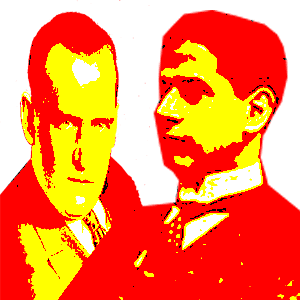
Jose Raul Capablanca and Alexander Alekhine were no longer on good terms when the rematch did not materialize
Namely that Capablanca would be required to raise $10,000 for match stakes. More than half of this would go to the champion regardless of the result. First to win 6 games would take the title and draws would not count.
The ex-champion would try in vain to organize the rematch but always there were obstacles of one fashion or another. Apparently Alekhine was heard to remark to a friend that somehow the match will never take place. It resulted in a complete breakdown in relations between the two. Other less dangerous opponents did not have the same difficulties in getting a shot at the title. The first of these was Efim Bogoljubov.
Alekhine vs Bogoljubov
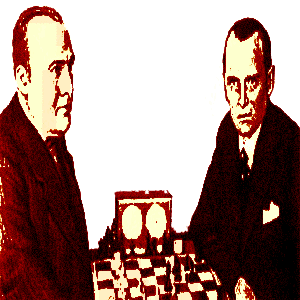
Alexander Alekhine defended successfully twice against Efim Bogoljubov in 1929 and 1934
It's official challenger was Efim Bogoljubov, a native of Kiev. Alekhine didn't necessarily recognize FIDE's authority to take charge of the World Championship. But he agreed to play Bogoljubov for the title. They met over the board in Berlin in 1929. Alekhine won with a score of 11-5 and 9 draws.
Alekhine enjoyed some great results over the next few years albeit, never in the same tournament as Capablanca. He was 1st at San Remo 1930, 1st at Bled 1931, 1st at Bern 1932 and 1st at London 1932.
He played Bogoljubov for the title a second time in 1934. The rematch was played in 12 German cities. The result was the same, this time on a score of 8-3 with 15 draws.
Alekhine vs Euwe
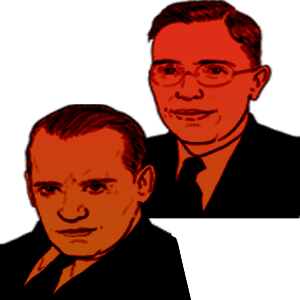
Max Euwe borrowed the World Championship from Alexander Alekhine for 2 years
Alekhine said that he would easily win and there were not many to argue with him. He did not really prepare for the match and drank heavily throughout. In contrast the Maths professor Euwe prepared meticulously and played diligently.
It seemed that Alekhine was falling into the same trap of complacency as Capablanca had eight years previously. Although he led 5-2 at one stage Euwe finished strong and beat him 9-8 with 13 draws to take the title.
Alekhine immediately gave up the alcohol and went back into serious training. He got a shot at regaining the title from Euwe two years later. The second match was keenly contested in the early stages. Alekhine found another gear as the match progressed and powered away to victory (10-4 with 11 draws). He was World Champion again.
Later Years
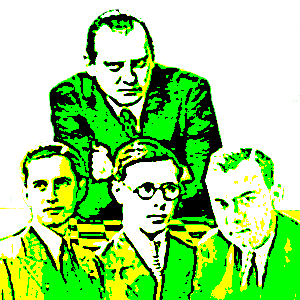
Alexander Alekhine faced fresh competition from rising stars like Keres, Botvinnik and Fine
New players were arriving on the horizon to join the still lurking Capablanca. Paul Keres, Reuben Fine, and Mikhail Botvinnik had emerged as the future of the game. Botvinnik challenged Alekhine for the World Championship in the winter of 1938.
Terms and conditions were for the most part agreed and the match seemed destined to proceed. But World War II broke out and put everything on ice. Keres had also held talks with Alekhine on a World Championship decider but again the War put a stop to it. He also agreed once again in principle to play Capablanca. But again nothing would come of it.
Conspiracy Theories
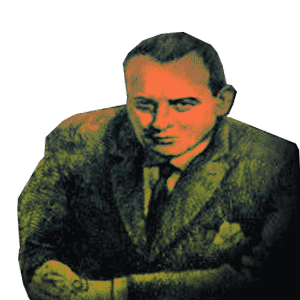
Alexander Alekhine spent his last years in Portugal
He agreed to play tournaments in Nazi occupied territory to ensure his wife's safety. He was later accused of collaboration with the Nazi's because of this and some literature that was attributed to him.
He spent much of the latter war years on the Iberian peninsula. Here he would be relatively safe from the Soviets who were not happy about his alleged affiliations with the Germans. After the war the now penniless Alekhine was found dead in a dingy hotel room. The verdict was accidental choking on his food. However speculation was rife that the Russians had got their man.
Alekhine's Legacy
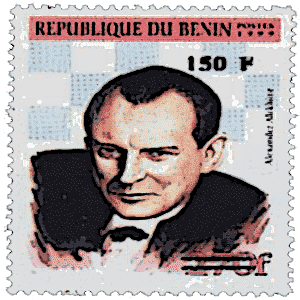
Alexander Alekhine faced fresh competition from rising stars like Keres, Botvinnik and Fine
His positional awareness and deep strategic nous allowed him to live with Capablanca. His problem solving abilities gave him the edge in complicated positions against tricky customers like Nimzowitsch. His remarkable creativity meant he could go toe to toe with artists like Reti.
Alekhine made an enormous contribution to chess with multiple defensive systems and variations taking his name. He also wrote many books on chess containing detailed analyses of games in major tournaments. He was working on a book of Capablanca's games when he died.
Share Your Alexander Alekhine Stories and Games
The problem with biographies is you must concentrate on breadth and can never go as deep as you would like. You can mention the major events in someone's life but can't allow yourself to indulge in intricate detail. Alexander Alekhine lived during a tumultuous period of Russian and World history. He was quite a controversial character both within chess and without. There must be countless anecdotes and interesting accounts of different episodes and incidents throughout his days. Many of these stories would have originated from among the great many people that he would have met in different parts of the world. Some of these accounts give us an insight into what kind of man he was, what made him tick. Or if you prefer you could annotate one of his games, reflecting his genius over the board. Do you know of an interesting story or game from the life of Alexander Alekhine? Share Your Alexander Alekhine Anecdotes or Games With Us.
Alexander Alekhine Entries Left by other Contributors
Click below to see Alexander Alekhine Entries by other Contributors...
Alexander Alekhine in Disguise Not rated yet
Alexander Alekhine from Moscow was a famous chess player in the early 20th Century. He was World Champion for almost 20 years. Along with being a World …
Alexander Alekhine vs Francisco Lupi Not rated yet
Alexander Alexandrovich Alekhine was one of the greatest chess players and was the fourth World Chess Champion. He was born in Russia in 1892 and by the …
Moving On
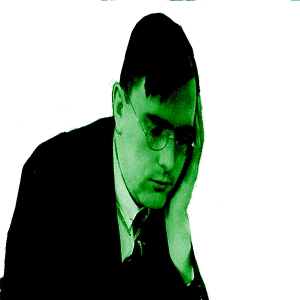
Max Euwe
In 1948 the World Championship was decided for the first time on a league basis between the top five players in the world. They would play 20 games, four against each of their rivals. The five strong field did not lack for quality.
They were former champion Max Euwe, future champion Vasily Smyslov, reigning USSR champion and eventual winner Mikhail Botvinnik, the Latvian Paul Keres (Soviet citizen) and the Pole Thomas Reshevsky (US citizen).






